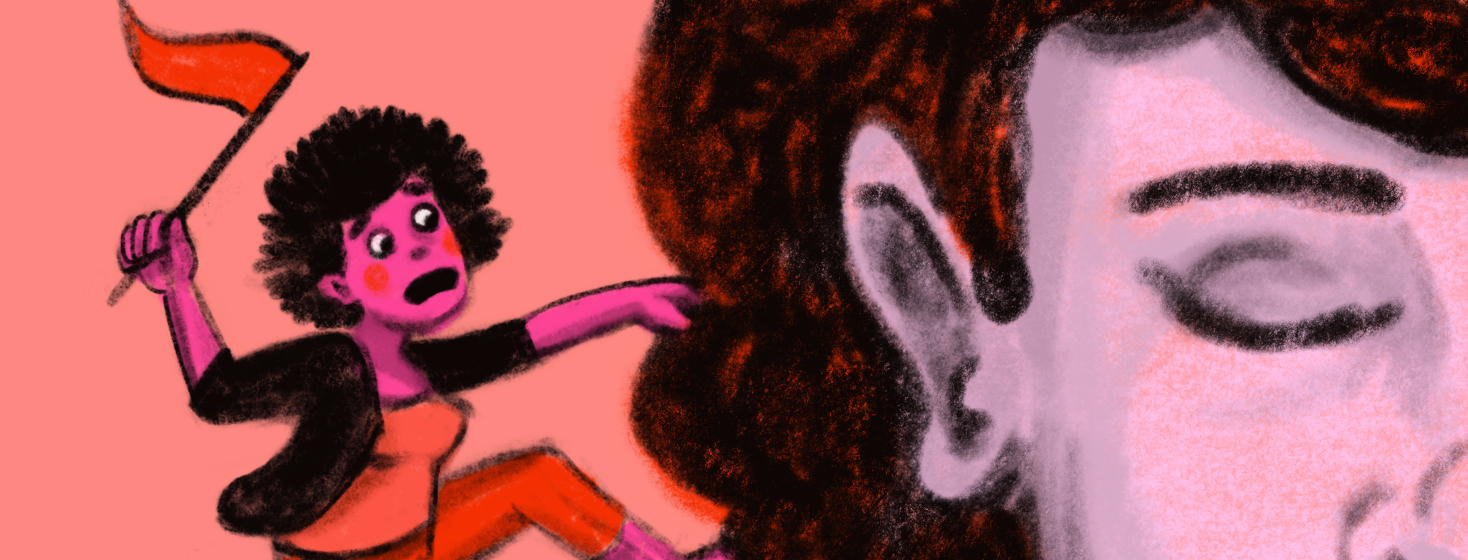Red Flags and Thyroid Eye Disease - How I Found My Doctor
It is hard to find the right doctor for thyroid eye disease. I often see questions online - where do I turn? Who can diagnose me? Does my endocrinologist handle this?
While it is important to treat thyroid conditions like Graves’ disease with an endocrinologist, TED is a separate condition that is normally treated by an ophthalmologist who specializes in TED. I learned the hard way that not every ophthalmologist is up to the task.
I strongly believe that I am my own best advocate. I’ve been in plenty of situations in which I had to ask to be tested for a specific condition that I very clearly had. I did my best to research TED as I began to see symptoms appear, but this proved to be difficult. I found a lot of information about symptoms, but very little practical information about how to talk with my doctor, what questions to ask, what tests and measurements I should expect to be performed, detailed information about the active vs inactive phases, and treatment options.
So when I walked into my ophthalmologist’s office to explain my symptoms and concerns, I trusted what my doctor said. He was widely recognized as a great doctor, and I had been seeing him for years. In fact, I had switched to his office after a bad experience with a different doctor. I had no reason to not trust him.
Red flags about the doctor treating my TED
My appointments for the next few months ended with “there’s nothing to do right now but monitor it.” Okay, I understood that I was in the active phase, so far it was a minor case, and I had to wait (Tepezza wasn’t available at the time). He also checked my optic nerve, which I understood to be an important test. Yes, it was frustrating to wait, but there were no major red flags yet.
Then finally I asked - “I’m waiting and monitoring, but what are we eventually going to do about it if it gets worse?”
He explained that an associate of his could do a cosmetic surgery in which he would add a stitch to the corner of my eye to make my eyelids look more closed.
RED FLAG RED FLAG!!! I didn’t have to be a TED specialist myself to know that is not how one treats a serious medical condition.
Then he told me to schedule my next appointment for a full year later. MORE RED FLAGS!!! I was shocked. My symptoms were getting worse, I needed help, yet he repeated, “See you in a year.” I realized then that he had no idea how to treat TED, and I wish he would have just told me that in the beginning or referred me to a different doctor. I felt betrayed.
Next steps to finding a doctor
I left and immediately called my endocrinologist’s office for referrals. Once I had a handful of names to look up, the task still proved to be difficult. Every doctor except for one wasn’t accepting new patients. Even living in New York City, I had limited options. Fortunately, the single specialist left on the list was wonderful. He has seen me through years of emotions and multiple surgeries. He explained a clear roadmap from the start and was always patient as I went through a list of a dozen questions at each appointment.
Looking back, what I wish I would have done
Early on, my endocrinologist’s associate had asked if I wanted recommendations for TED specialists. I responded with a polite no thank you, explaining that I already had a great doctor who seemed to be on top of it. I wish I would have gone to see the specialist then. But how could I have known? This disease was so new to me. Perhaps I should have asked, “What questions should I ask my ophthalmologist to make sure it’s the right fit?” Then again, I wish this associate had been firmer with her suggestion.
I wish I would have known what questions to ask my ophthalmologist. If I had only asked about long-term treatment plans in the beginning maybe I would have known to switch doctors sooner.
I sometimes wonder what would have happened if I had not wasted those first few months with the wrong doctor. Would anything have turned out differently? Who knows. All I can do is write about my experience and hope others have the opportunity to seek out a second opinion.
Do you have a story about finding the right doctor for thyroid eye disease? Click the button below to share with our community!

Join the conversation